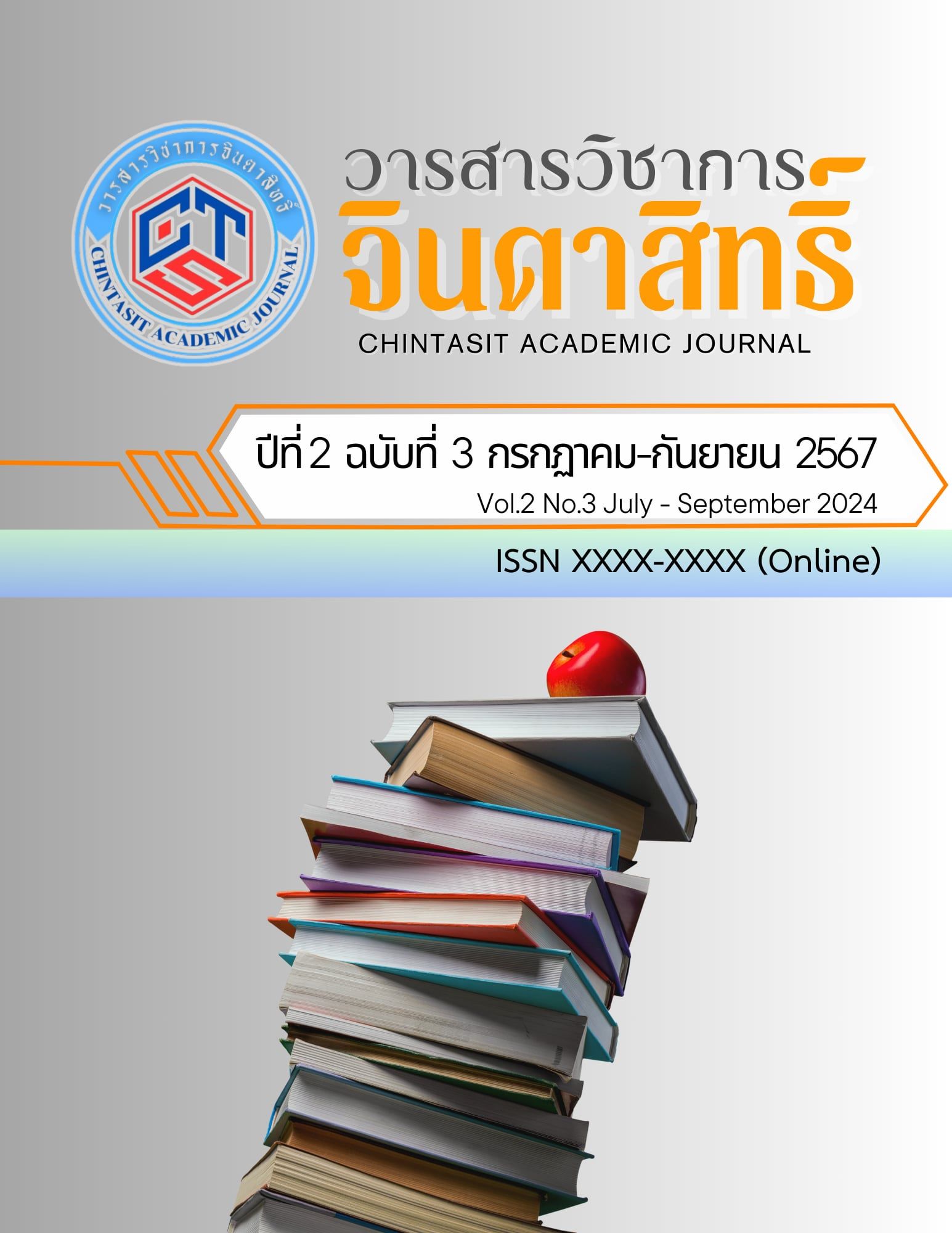Factors Affecting Administrative Success to World-Class Standard Schools: A Case Study of Primary Schools in Loei Province
Main Article Content
Abstract
This research aimed to study the factors contributing to the success in managing world-class standard schools, focusing on primary schools in Loei Province, Thailand. The objectives were to (1) examine the current situation, problems, and challenges, (2) analyze the factors affecting success, and (3) propose guidelines for developing appropriate and sustainable primary school management towards world-class standards. The study employed a mixed-methods research design. The research population comprised personnel from three world-class standard primary schools in Loei Province, including school administrators, teachers, educational personnel, students, parents, and community representatives. Data were collected through questionnaires, in-depth interviews, focus group discussions, and observations.
The findings revealed that the most critical factors contributing to success were (1) leadership of school administrators, (2) promotion of English language and technology skills, and (3) teacher professional development. The study also found that integrating international standards with local context and efficient resource management were significant factors. Challenges included developing English language skills, integrating technology in teaching and learning, and balancing international standards with local cultural preservation.
Based on these findings, the research proposes guidelines emphasizing visionary leadership development, enhancing English and technology skills relevant to local context, implementing continuous teacher development, creating integrated curricula combining international knowledge with local wisdom, and fostering community participation in school development.
Article Details

This work is licensed under a Creative Commons Attribution-NonCommercial-NoDerivatives 4.0 International License.
Chintasit Academic Journal is licensed under a Creative Commons Attribution-NonCommercial-NoDerivatives 4.0 International (CC BY-NC-ND 4.0) licence, unless otherwise stated. Please read our Policies page for more information on Open Access copyright and permissions.
References
การท่องเที่ยวแห่งประเทศไทย. (2565). แผนส่งเสริมการท่องเที่ยวจังหวัดเลย ประจำปี 2565.
สำนักงานการท่องเที่ยวแห่งประเทศไทย สำนักงานเลย.
กระทรวงศึกษาธิการ. (2561). นโยบายและแนวทางการพัฒนาโรงเรียนมาตรฐานสากล.
โรงพิมพ์ชุมนุมสหกรณ์การเกษตรแห่งประเทศไทย.
พรพิมล ประสงค์พร. (2562). การพัฒนาโรงเรียนมาตรฐานสากลในภาคตะวันออกเฉียงเหนือ:
กรณีศึกษาเชิงพหุ. วารสารศึกษาศาสตร์ มหาวิทยาลัยนเรศวร, 21(2), 286-302.
สำนักงานคณะกรรมการการศึกษาขั้นพื้นฐาน. (2563). คู่มือการบริหารจัดการระบบคุณภาพโรงเรียน
มาตรฐานสากล. โรงพิมพ์ชุมนุมสหกรณ์การเกษตรแห่งประเทศไทย.
สำนักงานจังหวัดเลย. (2564). แผนพัฒนาจังหวัดเลย พ.ศ. 2564-2570. สำนักงานจังหวัดเลย.
สำนักงานเขตพื้นที่การศึกษาประถมศึกษาเลย เขต 1. (2565). รายงานผลการดำเนินงานโครงการ
โรงเรียนมาตรฐานสากล ปีการศึกษา 2564. สำนักงานเขตพื้นที่การศึกษาประถมศึกษาเลย
เขต 1.
Cheng, Y. C. (2004). Fostering local knowledge and human development in globalization of
education. International Journal of Educational Management, 18(1), 7-24.
Darling-Hammond, L. (2017). Teacher education around the world: What can we learn from
international practice? European Journal of Teacher Education, 40(3), 291-309.
Fang, X., & Warschauer, M. (2004). Technology and curricular reform in China: A case study.
TESOL Quarterly, 38(2), 301-323.
Fry, G. W., & Bi, H. (2013). The evolution of educational reform in Thailand: The Thai educational
paradox. Journal of Educational Administration, 51(3), 290-319.
Fullan, M. (2007). The new meaning of educational change (4th ed.). Teachers College Press.
Hallinger, P., & Lee, M. (2013). Exploring principal capacity to lead reform of teaching and learning
quality in Thailand. International Journal of Educational Development, 33(4), 305-315.
Hanushek, E. A. (2003). The failure of input‐based schooling policies. The Economic Journal,
(485), F64-F98.
UNESCO. (2017). Education for Sustainable Development Goals: Learning Objectives. Paris:
UNESCO.
United Nations. (2015). Transforming our world: The 2030 Agenda for Sustainable Development.
New York: United Nations.
Zajda, J. (2015). Globalisation and its impact on education and policy. In Second International
Handbook on Globalisation, Education and Policy Research (pp. 105-125). Springer,
Dordrecht.


